***
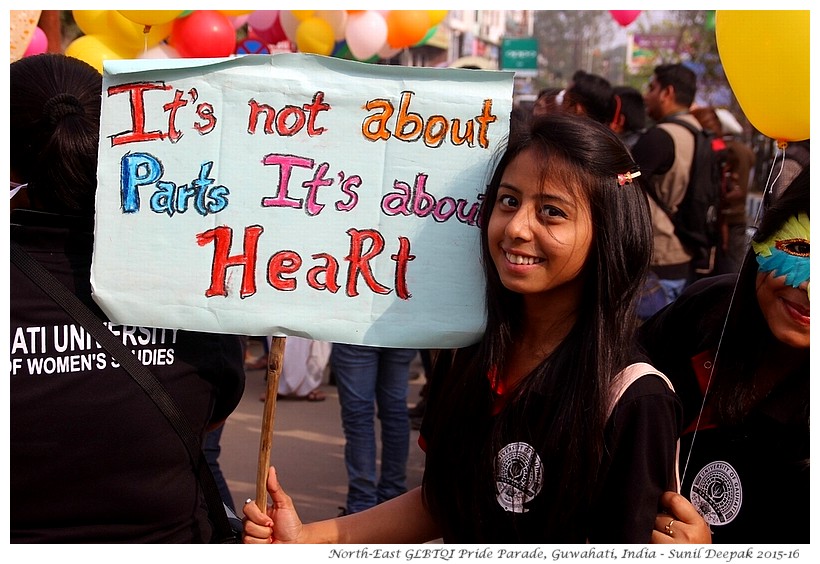
I was not sure how to answer him. Yet, I was pleased that he had enough confidence in me to raise that question. I don’t think that it was, and I don’t think that it is, easy to discuss doubts about your sexuality with your close friends.
Till that time, the subject of sexualities had never been raised in our medical studies. In our anatomy class, when he had come to the chapters on sexual organs, our male professor had told us with a knowing smile that we could read those chapters ourselves. I used to think that it will be taught in the final year. I wouldn’t have believed at that time that at undergraduate level, medical students were not taught any thing related to sex, sexuality or genitals.
And, I don’t know how much of it has changed today. Perhaps young doctors can add about their own learnings on sex and sexualities in the medical colleges in India now.
It was a time when many of us went to work after the medical degree, rather than going for a specialisation. So our education system was turning out doctors, who were going to work, and who had never been taught anything about sexuality.
During our clinical studies, we had studied about the health conditions linked to the genital organs, especially sexually transmitted diseases, those that require surgery and those related to child-birth. And that was the end of our sexuality knowledge. Our medical education was linking sexuality exclusively to the ideas of disease conditions, rather than to ideas of pleasure and self-fulfilment.
***
“So what is the opinion of the doctor about it? Is it normal?” Similar questions are common in a variety of situations. When people are not sure about something related to the human body, asking the opinion of the doctors seems like a logical solution.
Rarely people ask themselves if the doctors have the knowledge and training to answer those questions properly. It is difficult to think that doctors, like most other persons in the society, carry the usual prejudices of the society in which they live.
There is limited research in India on the issues of sexualities. Often the research is carried out under the aegis of psychiatry departments, leading to the impression that sexuality is related to psychiatric disturbances.
I could not find any research on attitudes of Indian doctors about alternate sexualities. However, from colleagues, I have heard stories of doctors refusing to see and to treat transgender persons or being rude to them.
***
What are the opinions of Indian doctors about LGBTQ issues?
After the Supreme Court judgement on 11 December 2013, that reinstated section 377 of Indian Penal Code, on 27th December 2013 the Indian Medical Association (IMA) passed a resolution that “homosexuality is a variation of sexual orientation and not a disease”. However, many members of IMA did not agree with this official position.
On 19 January 2014, an ex-president of Indian Psychiatric Society (IPS) said that in India, talking of sex was unnatural and that homosexuals had brought these discussions out on the streets, implying that homosexuals were unnatural. Some days later, on 3 February 2014, the general secretary of IPS said that “Homosexuality is a grey area, entailing confusion and complexity, and black and white comments can't be made on it”. The above statements made by psychiatrists, who are supposed to have greater understanding about sexualities, did provoke some debates. Thus, On 7 February 2014, IPS was forced to issue a statement that “there is no evidence to substantiate that homosexuality is an illness or a disease”.
A recent newspaper story dated 26 July 2015 talked about a group of psychiatrists in Delhi who considered homosexuality as “a condition similar to bipolar disorders and schizophrenia”, to be treated by “conversion therapy” based on electro-shocks. This story provided details of interviews with many doctors.
One doctor claimed to have “helped” more than a thousand persons in “treating” homosexuality and usually charged 1.1 lakh Rs as a “complete package for treatment”. Another clinic claimed to “cure homosexuality” in one month for “only” 2,100 Rs. One doctor blamed the “excess of female hormones in male bodies” for homosexuality, while another talked of a “recessive homosexuality gene”.
Such pseudo-scientific talks, not based on any scientific-evidence, feed on the common prejudices among people. Since doctors and even more so, specialists like psychiatrists, are seen as authority figures, such claims and such services, serve to perpetuate and strengthen stereotypes and prejudices in the society.
Thus, even when official medical bodies make the “right” statements, individual doctors often continue to hold-on to their ideas that do not agree with the official positions.
These newspaper stories were about doctors in Delhi, but are doctors in other cities any better? What about similar doctors and clinics in the North-east? Probably the situation will not be so different.
***
So what should persons do when they want an advice about a sexuality issue from a health professional?
There are many occasions when LGBTQ persons and their families need sensitive and sensible advice from professionals who understand their worlds and their specific needs – such as, when young people are not sure about their orientation or gender, when persons wish to undertake hormonal or surgical treatment for gender reassignment, and when persons want to have families and think of surrogate pregnancy or artificial insemination.
Today a lot of information is available on internet. However, it is not always easy to judge the reliability of this information. It may be too much and sometimes, contradictory. Thus coming to a decision may not be easy and some guidance may be needed. However, I feel that the greatest advantage of internet based information relates to sharing of personal life stories and experiences, and creating peer support groups.
One answer for LGBTQ groups can be to start working on creating a database of responsible and sensitive health professionals in their cities. For example, a group of persons have started a crowd-sourcing work on identifying “Gynaecologists whom we can trust” (#GynaecsWeCanTrust), that provides information in different languages about reliable gynaecologists in different Indian cities.
Some time ago I had visited the office of an Association of transgender persons in Bologna (Italy) called MIT. They were able to convince the local government on the need of having access to experienced psychologists and health professionals. Thus, in their office, the local government had agreed to provide them with professionals, to be available for consultation a few times in a month. Though initially the professionals had limited knowledge and skills about issues related to transgender persons, with time, they were able to gain both.
Hoping for a support from the Government on this issue in India may not be realistic in the short term, but perhaps similar solutions can be explored by GLBT Rights organisations and groups locally with some professionals who have an understanding of these issues.
***
I want to conclude this article with a few images from the LGBTQI Pride Parades held in Guwahati (Assam, India) in 2015-16.
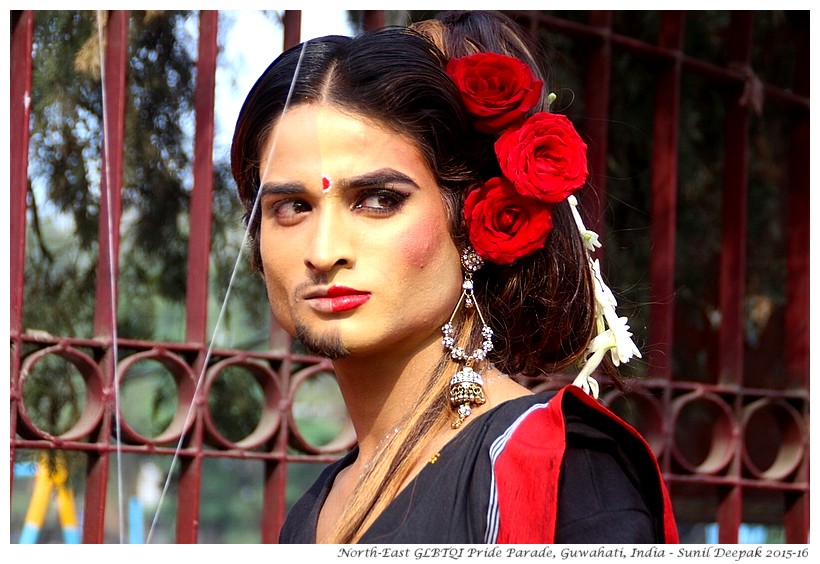
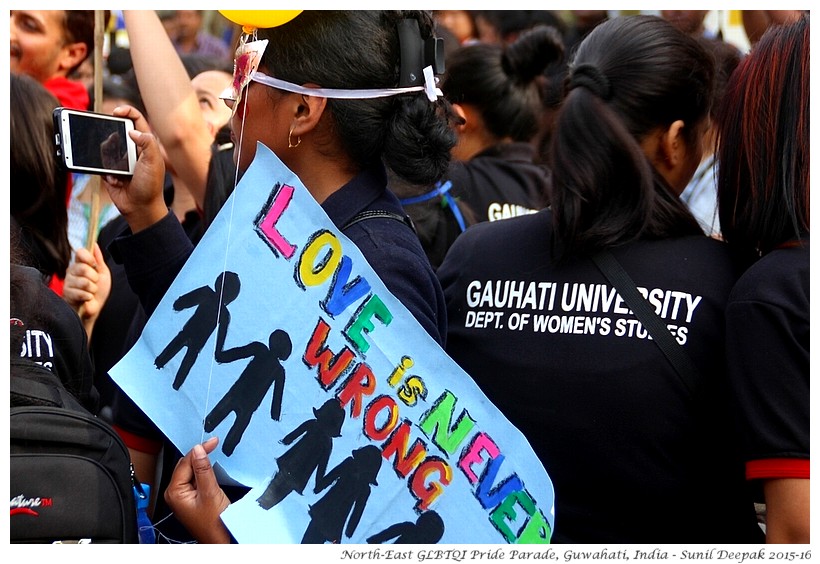
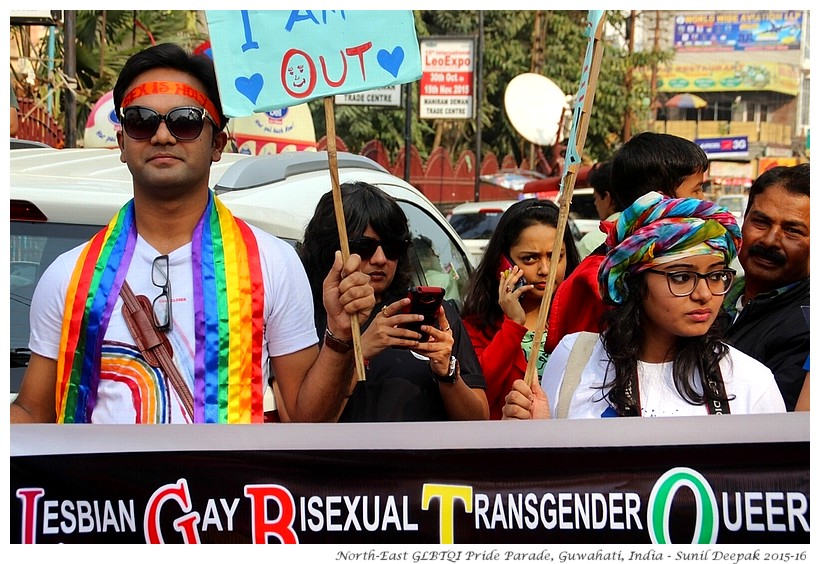
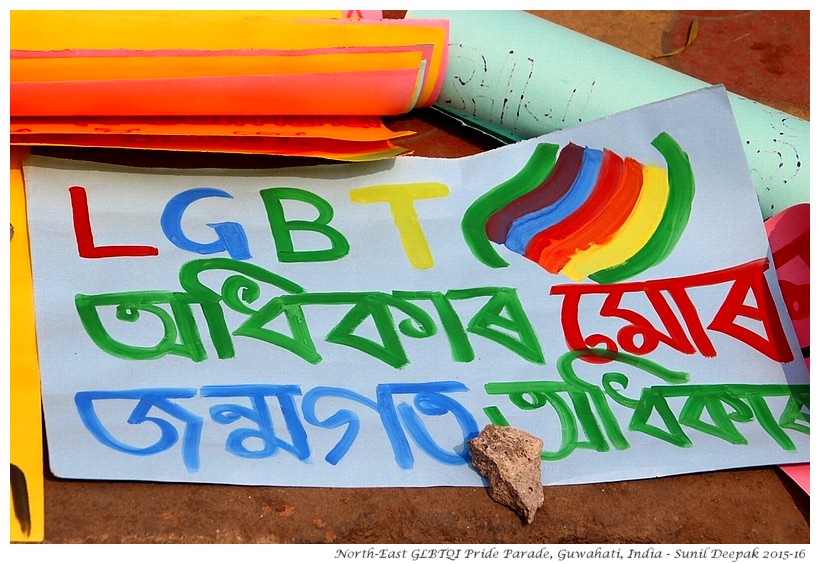
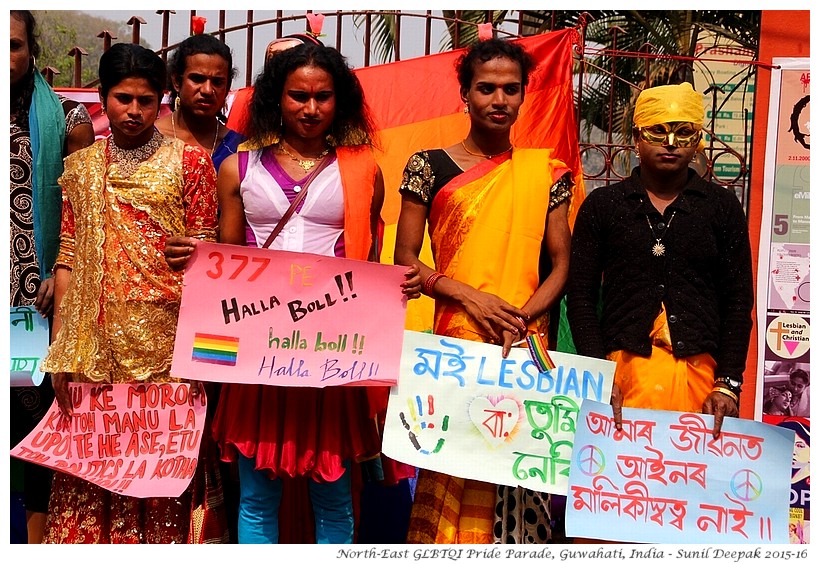
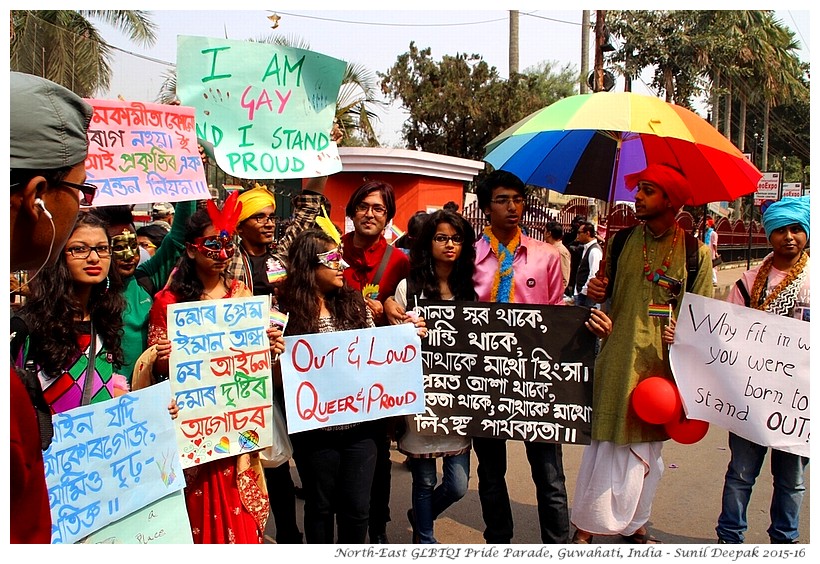
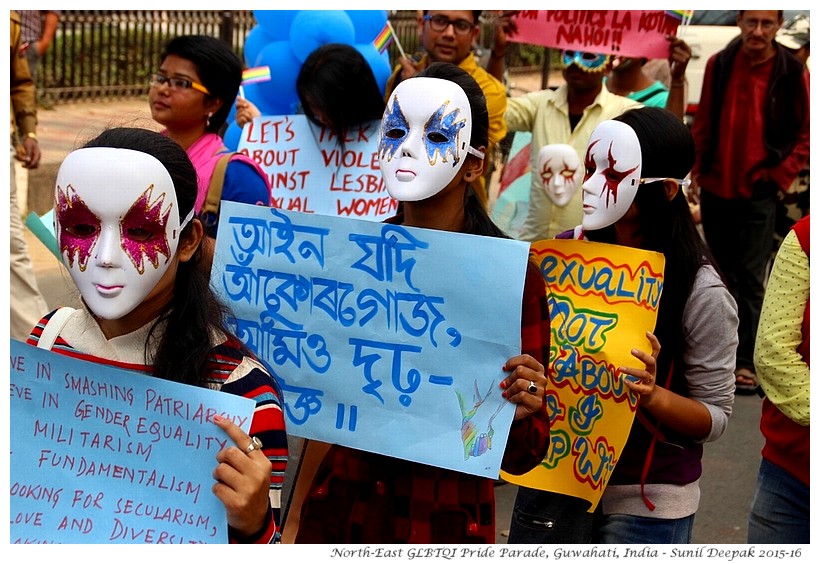
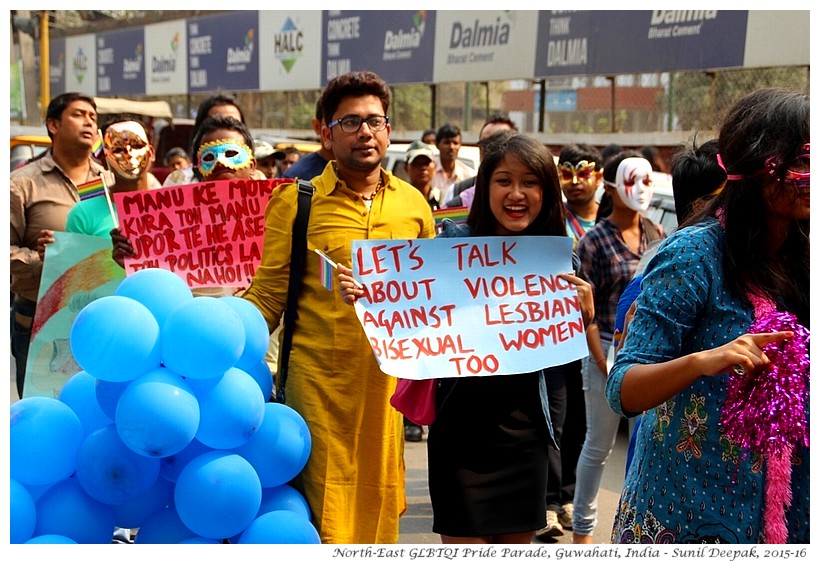
***






Dr Saab there is no clarity on the subject legally or socially or medically. In India the subject has been brushed under carpet. More so under the present regime.
ReplyDeleteThanks Harsh. It is a pity that in spite of so many progressive ideas, such as recognition of transgender persons, in others we are still following Victorian ideas!
Delete